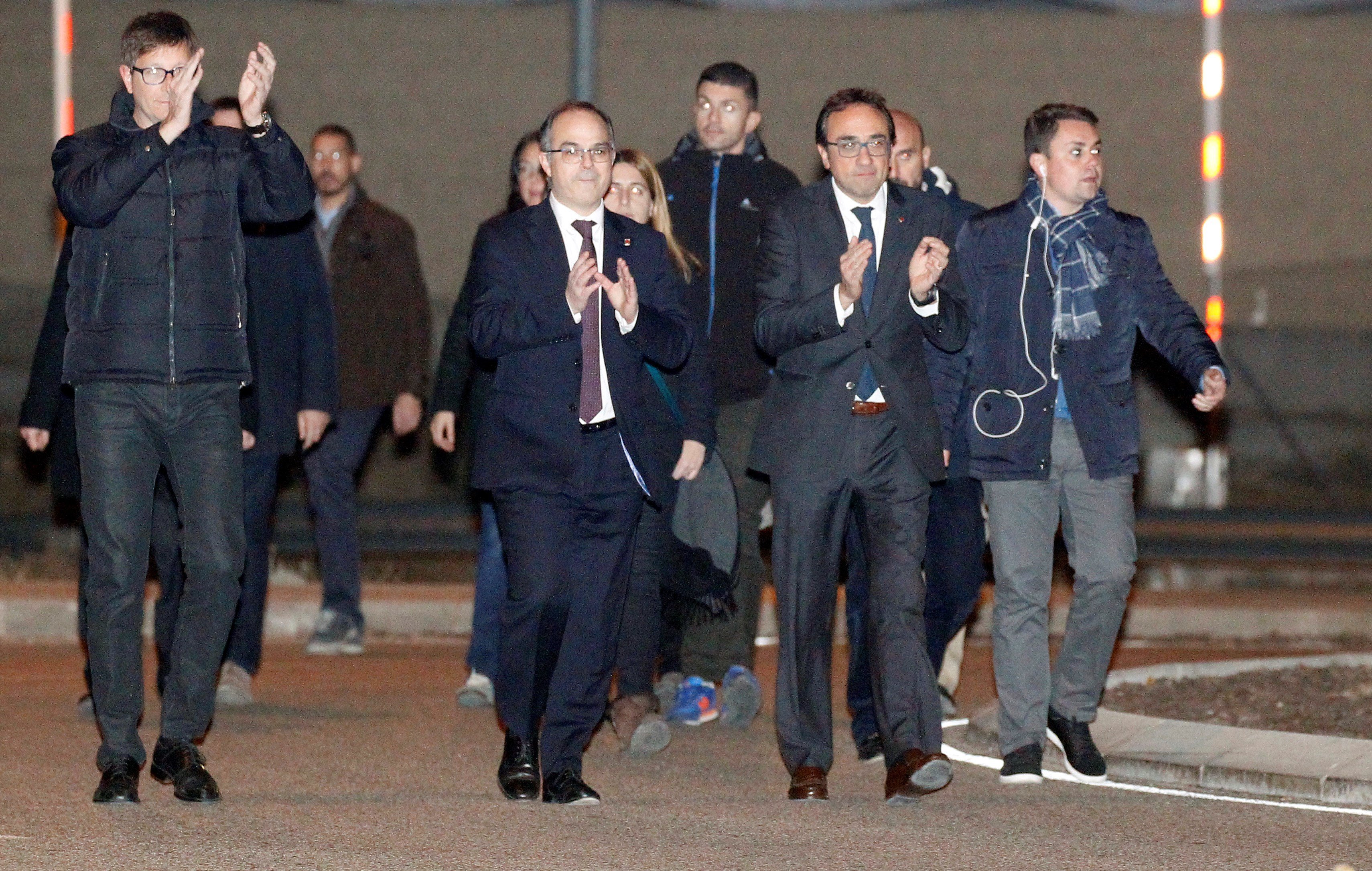"Today I'm very happy with how these days are going." That was the remark from Andreu Van den Eynde, lawyer for Oriol Junqueras and Raül Romeva, leaving the Spanish Supreme Court today. Neither he nor Jordi Pina, Jordi Sànchez and Josep Rull's lawyer, could hide their satisfaction at having turned the case on its head, taking it into the sphere of fundamental rights and democracy.
At a time when the political prisoners are no longer arguing for their release from pretrial detention, now they know they will be behind bars until the trial starts at least, they are no longer restraining themselves in what they say nor hiding their feelings. Their latest statements to the Supreme Court have been a platform to defend their pro-independence feelings and to tell the judge, face-to-face, what they think of his investigation and the way legislative and legal power have been mixed.
They no longer fear the consequences of speaking so bluntly, because they've already accepted them. They have been in Estremera and Soto del Real prisons for as long as six months, but now the decisions being taken by European courts over the extradition of the government in exile, especially in Germany, have given them a boost.
"After six hearings, the process has become so contradictory the result is satisfactory. Contradictions from the instructor himself and which are taking us to a procedure which almost stops speaking about the facts, but it talks about politics, democracy and rights", Van den Eynde told the media outside court today.
According to the lawyer, after this week's testimony, prosecutors are uncomfortable. "It's uncomfortable that the procedure is revealed to be a case against democracy. After six statements we come to speak only about that, about ideological freedom, about how procedural rights are being treated." No longer are facts being discussed.
Political interference
Now talk is of political interference. The bluntest in this vein was territory minister Josep Rull, who quoted Spanish justice minister, Rafael Catalá as an example for the judge. Catalá had revealed meetings between Spanish and European prosecutors and made comments over the path the legal case should take which ended up coming true.
Lawyer Jordi Pina remarks that "maybe it's down to chance, but nobody can deny the right to bring it up". "If we fill our mouths with the separations of powers, it's not very favourable for those who are imprisoned to see that part of the executive makes statements which they later see are being fulfilled on a judicial level," he continued.
Pina said that "hopefully it will be a fair trial and not at the dictates of the Spanish government", but also remarked that "rights are being violated and there's no separation of powers". That is how the prisoners see it and they're no longer staying quiet before the judge.
The case's evolution can be seen both in the new defence strategy marked by the wishes of the prisoners themselves and in the way judge Pablo Llarena's rulings have changed, using ever more political arguments, fewer based on evidence of an alleged crime of rebellion which in this case is not supported by the violence which the criminal code says has to be present.

